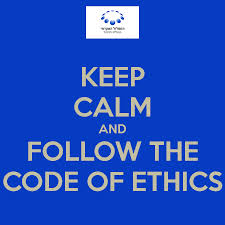Codes of Ethics for Financial Institutions
Code of Ethics Series
Published by Seven Pillars Institute
1. JPMorgan: Code of Ethics and Revisions Since the 2008 Financial Crisis
JPMorgan has an extensive Code of Ethics, which appears to be well polished, written and executed. There are adequate policies designed to encourage compliance and whilst changes have only occurred to the Code of Conduct, they have been very positive in nature. Despite this, there appears to be no change in the frequency of ethical issues facing the company which suggests different types of intervention are needed. READ MORE
2. Global Financial Leaders Insist on the Necessity of Financial Ethics
Banking and financial regulators around the world are now speaking about ethics and promoting an ethical culture in finance openly. Leaders among the world’s major bank supervisory bodies, and top-level executives in international banks, are doing the same. This is a change from the pre-GFC (Global Financial Crisis) era. In the past, regulators, bankers and the financial academy spoke of efficiency, market determined guidance and consequently, ‘light-touch’ supervision. Perhaps in some small measure the increasing willingness to include ethics in the dialogue about finance is due to the work and research of leading religious and independent non-governmental organizations. The Seven Pillars Institute has always stressed that the separation of finance theory from ethics is artificial. READ MORE.
3. Goldman Sachs: Code of Ethics Post-2008
A company’s Code of Ethics is a form of best practice that allows the organization to embed values and behaviors in company culture. To be successful, the firm must undertake specific procedures, including training and professional development, managerial leadership and certification and enforcement practices. This article examines Goldman Sachs’ Code of Business Conduct and Ethics in light of public and regulatory scrutiny following the Global Financial Crisis (GFC) as well as reforms and revisions administered by the firm. READ MORE…
4. Morgan Stanley Code of Ethics: 2008 vs. 2018
Morgan Stanley – a leading investment bank and infamous villain in the Global Financial Crisis (GFC) of 2008 – updates its ‘Code of Ethics and Business Conduct’ regularly and has changed the document with additions and deletions since the GFC. A code of ethics is a set of rules and responsibilities businesses promise to adhere to, formulated by the businesses themselves. It has also been defined as “a formalized public statement that articulates the rules and regulations that will guide organizational practices with ethical consequences.”[1] Given a dark history including the GFC and the Great Depression of 1929 before that, businesses in the financial industry find value in presenting a code of ethics to outline expectations for employees and demonstrate integrity to the public. Morgan Stanley implements its code of ethics by attempting to promote a culture of ethical practice. However, since unethical behaviour has appeared since the GFC, the sufficiency of Morgan Stanley’s attempts at ethics remains questionable. READ MORE…

